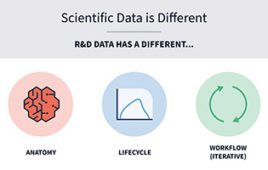A nice beginning for the active mind to acquire grounding in many areas
My occasional rants usually involve my twin interests of genomics and the mathematical education of scientists. This month’s column is a natural extension of the latter in that Wolfram’s MathWorld Web site is a nice place for the semi-literate practitioner (or the very astute educator) to get grounding in many areas of mathematics, and perhaps an impetus to upgrade their skills, however slightly. As with any resource, there are both positive and negative features of the site. I’ll start with the positive features, as these predominate.
The pros
When entering the site www.mathworld.wolfram.com, the first-time user may be struck by the (relatively) small number of choices available. This is a great advantage, as the Web masters have opted for simplicity with the smallest number of alternatives and drill-downs. There are presently 11 choices from various areas of math from algebra to topology. Beneath this is a brief list of other options, including interactive sites. To the right of the homepage are listings of related Wolfram sites and below are the newer additions, including a site discussing the math behind the TV crime drama NUMB3RS. Now to the really informative stuff…
The beginner might wish to start with a few of the more familiar and less formidable areas. I would suggest Applied Mathematics, History and Terminology, and Recreational Mathematics (yes, some people actually do this for fun!). Under Applied Mathematics there are 14 sections covering such diverse topics as business, optimization and signal processing. With enough experience in any group of areas, it usually becomes apparent that they are interconnected by many of the tools and approaches they use. For example, business and engineering use many of the same data visualization approaches to simplify complex data, some of which are highlighted in the Data Visualization subsection. These include bar charts, scatterplots and function graphs.
The business/economics section on moving averages offers clues in a brief few equations and a single graphic as to why this concept may be of interest on Wall Street. It offers information on point estimates of a commodities mean in the context of non-static behavior. We like to see data reduced to descriptive parameters, but now we see how rapidly even these descriptors can change.
There is an element of beauty in mathematical form, and this is readily accessed under the Recreational Mathematics/Mathematical Art section. Visualizations of the Mandelbrot Set, the Lorenz Attractor and the Feigenbaum function in the complex plane are stunning and rival many renditions of what are considered more conventional art forms.
There are also sections offering choices that are seemingly simple, but rapidly descend into the more complex and arcane. For example, under Applied Mathematics/Game Theory one may peruse the famous and fun Prisoner’s Dilemma and the maddeningly counterintuitive Monty Hall problem along with such standard games of chance as cards and dice, but the choices rapidly become more complex as the Conway Game, Minimax Theorem and Combinatorial Game Theory are pursued.
The cons
As to the ‘less positive’ aspects, there are several annoyances. A glaring example is the lack of any information at many of the end sites. Under Bayesian Analysis, there is a brief discussion of the procedure. However, when we click the hyperlink to ‘prior distribution,’ the site suggests that it is waiting for a submission. Far too many lead to dead ends, and far too many are incomplete.
The organization also is wanting as, under History, we have no historical thread with how our knowledge built over time. The biography section contains no biographies but merely lists of links with theorems, proofs and conjectures to which the names are linked and not any information on the mathematician. My problem here is that many of the sites that do have information are so interesting that I always want more!
Conclusion
In summary, this site may be thought of as a beginning for the active mind, far from encyclopedic but offering a taste.
John Wass is a statistician based in Chicago, IL. He may be reached at [email protected].




